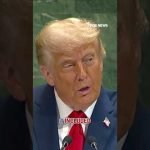The latest dust-up around Katie Hopkins shows exactly where the West is heading when authorities decide opinion is a crime. Hopkins reposted footage filmed inside the Old Bailey of Tommy Robinson during a hearing, and police have confirmed they are investigating whether the clip amounted to a contempt of court — a charge that, on paper, can carry serious penalties.
Under Britain’s contempt rules it is technically an offence to film or broadcast footage taken inside court precincts while proceedings are live, and lawyers say that, in theory, jail time is possible for those who republish such material. The reality, however, is messier: experts quoted in coverage say prosecution is unlikely in many republishing cases, but the discretion to punish remains and the threat is real.
What should alarm anyone who believes in free expression is not the letter of the law but how easily it can be used as a cudgel against dissident voices. Authorities now have the power to investigate and threaten criminal punishment for a social media post; that chilling potential is what silences witnesses, citizen journalists, and critics who lack deep-pocketed legal teams.
Hopkins is not some accidental provocateur — she has spent years as a lightning rod for controversy and has been punished in different ways by establishment institutions, from social-platform bans to high-profile expulsions abroad. Her deportation from Australia after a quarantine stunt and other public run-ins have made her a poster child for the “cancel everything” approach to dissent.
Put bluntly, this story is a warning: when a state can trundle in with police investigations over a shared video, the line between law and political censorship blurs. Left unchecked, such prosecutions will encourage media outlets and individuals to self-censor rather than risk being hauled into court for merely amplifying what citizens capture with their phones.
Conservatives who value liberty ought to be the loudest defenders of the principle that governments should not get to decide which inconvenient truths may be seen or shared. If the law is to be applied, it must be even-handed and transparent — not wielded as a political tool to muzzle critics who expose uncomfortable realities the powerful would rather keep hidden.
In the end, this is about more than one loudmouthed commentator; it’s about whether free societies will tolerate legal measures that create a permanent chill over speech. The better answer is to strengthen protections for citizen reporting and demand that any enforcement be narrowly tailored and subject to rigorous judicial oversight, not deployed as a one-way mirror for the establishment to hide behind.




